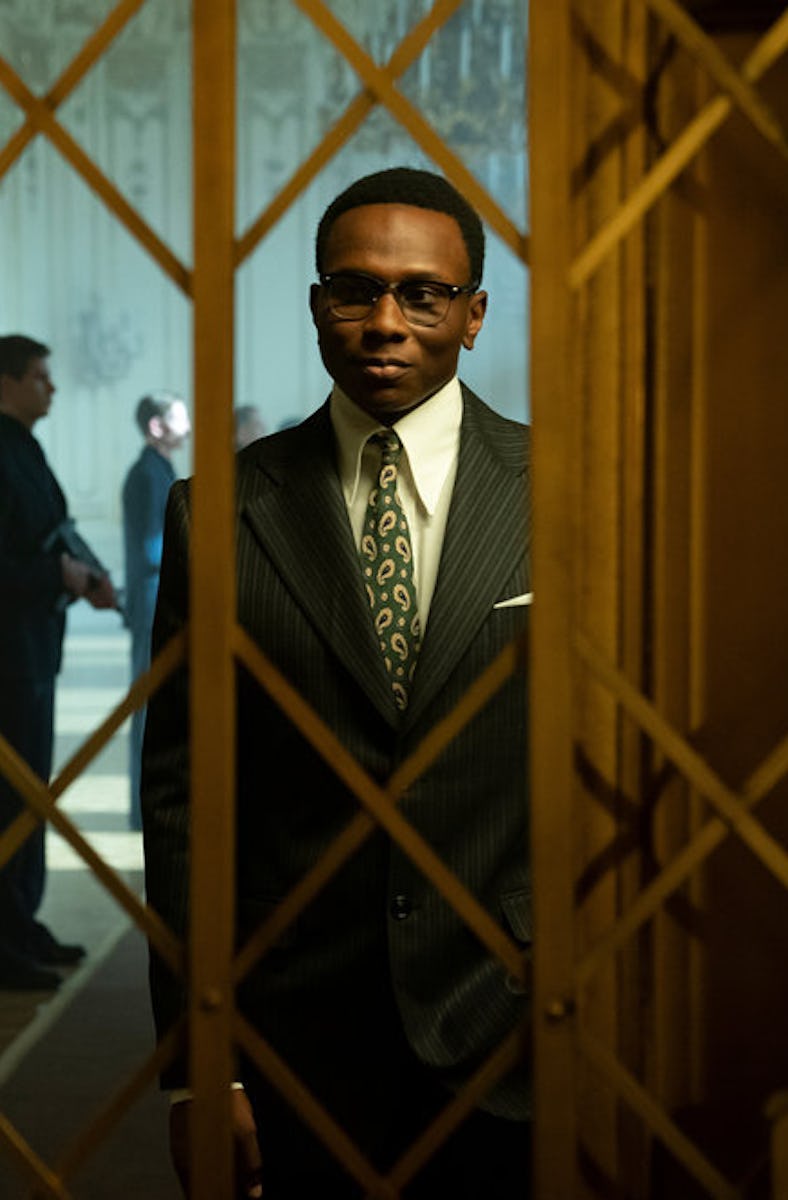The Continental Is the Rare Spinoff That Justifies Its Existence
The world of John Wick just keeps getting bigger. The Continental proves that isn’t a mistake.

The latest chapter of the John Wick saga was all about collateral damage. That’s par the course for the franchise that’s since become infamous for its creative kills, but with John Wick: Chapter 4, the film added The Continental to its list of casualties. The assassin haven finds itself deconsecrated, sending its two stewards — whiskey-swilling manager Winston Scott (Ian McShane) and his concierge, Charon (the late Lance Reddick) — on a new path. It felt like the closing of a chapter, an abrupt farewell to something that felt as much like a character as the film’s title anti-hero (Keanu Reeves).
It’s fitting, then, that the world of Wick is turning the clock back to explore the hotel’s origins. The Continental is the first of a handful of proposed spinoffs for the unlikely franchise, and as such, it’s also a massive gamble. The series also has to expand the franchise without the Baba Yaga for the very first time, but it does parse out familiar beats — and feature familiar faces— where it counts.
Fans will undoubtedly be tuning in to see just how a young Winston (Colin Woodell) inherited the Continental, or how he and Charon (Ayomide Adegun) first met. There are others tuning in for the franchise’s trademark violence, and with so many John Wick alums working behind the scenes, they won’t be disappointed. But the series knows better than to pin all its hopes on one man, or even on its eponymous hotel. The Continental is equally interested in the world it wants to build. While that might hurt the series as often as it helps, it still sets it apart from its predecessors.
The New York of The Continental is a very different world. Rather than the slick metropolis of the John Wick films, this New York is something more akin to what you’ll see in Taxi Driver or Shaft: grimy, seedy, and unpredictable. Winston Scott is the lone sophisticate in a sea of barbarians, thanks to his formative years abroad. He’s a native New Yorker, one that had to fight tooth and nail to escape his seedy origins — and he does not return to his hometown willingly. When we first meet this younger Winston, he’s just been dragged across the Atlantic to find his missing brother Frankie (Ben Robson). They haven’t spoken in years, but that’s not much of a factor when Frankie runs afoul of the Continental’s current management.
Frankie, it turns out, stole something of great importance to the Continental. He disappears shortly after shooting his way out of the establishment, and not even his current crew — the squirrelly Lemmy (Adam Shapiro), cool-headed Miles (Hubert Point-Du Jour) or his sister, Lou (Jessica Allain) know where he could be. It falls to Winston to locate his estranged brother, but in the process, he finds himself at the center of a coup to reform the hotel.
The John Wick films have always borrowed heavily from Greek myth, and The Continental makes sure to embrace that trend with gusto. Winston’s odyssey across New York brings him face-to-face with the city’s many underground tribes, like the gangs that function in the Continental’s periphery and the cops that turn a blind eye to its exploits. The Continental embraces its role as an homage, cribbing from blaxploitation classics, grindhouse kung fu, and neo-noirs whenever possible. Paired with a soundtrack packed with iconic needledrops, the series becomes the ultimate love letter to the ‘70s.
Colin Woodell stars as Winston Scott — and makes the role his own.
However, for all its posturing as an origin story about the Continental, there’s not a whole lot of it in the series. We don’t spend much time in the hotel, or in the complex world of assassins that Winston goes on to reform. For the most part, the Continental serves as a platform for the series’ Big Bad, Cormac (Mel Gibson), and all his wanton scenery chewing. Cormac is a preening, God-fearing man as obsessed with his image as he is with his divine right to rule. (Given Gibson’s past controversies, it’s a wonder how the actor was able to score top billing in The Continental, let alone wax poetic about consecrated ground).
When the series does finally pivot away from Cormac to focus on the hotel’s inner workings, it feels like too much, too late. We’re told the Continental has become “a cult” under Cormac’s jurisdiction — but we never really get to see how. We don’t see much of the hotel’s relationship with the High Table, either, or of the Adjudicator (an entirely wasted Katie McGrath) breathing down Cormac’s neck. As an origin story for the hotel, it feels incomplete. Fortunately, it more than makes up for its plotholes with the bone-crunching, balletic action that the John Wick films once trademarked.
When it comes to its action setpieces, The Continental is a worthy successor to the Wick films.
The John Wick saga has never been as concerned with the “how” or “why” of its world, but it did have the benefit of a simple story and propulsive action to keep everything running. The Continental is much more focused on intrigue, and on the individual arcs of its characters. While its disparate threads do culminate in an explosive, action-forward conclusion, the series might leave fans with more questions than they did before.
As an exercise in worldbuilding, it doesn’t entirely land — but what The Continental lacks in substance, it does make up for with style. For any other franchise, that’d be a death sentence. Fortunately, the world of Wick operates on a rule of cool, and The Continental has that, at least, in spades.
The Continental premieres on Peacock on September 22.
This article was originally published on